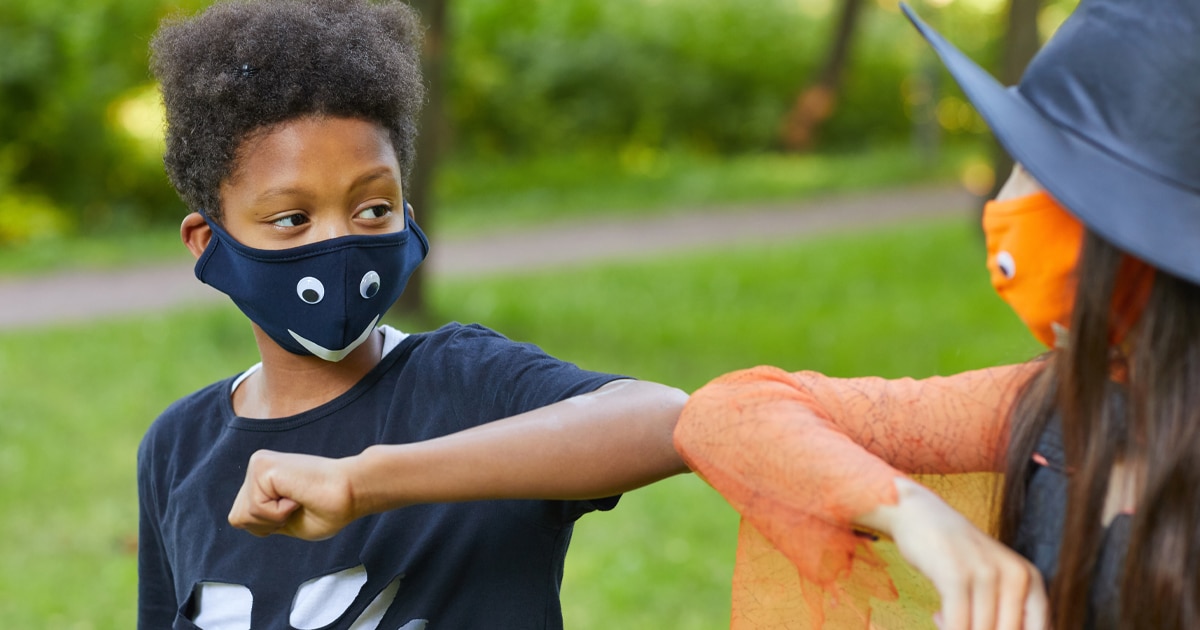Are your kids coping with covid?

Living with the pandemic is a challenge and it’s a relief when at least the kids seem okay. But how will you know if they’re not? Here’s what to look out for and what you can do.
Children don’t always know how to act in this strange time. That’s why they could suddenly act out or behave in unexpected ways. They might seem unhappy or downright sad. The trick is to know what it’s really about and how to handle it best.
In surveys by Save the Children in the US and several European countries, children said they felt anxious, bored, and fearful. Being unable to play outside with friends or worry about falling behind in education added to feelings of deprivation and anxiety.
Here is a list by a US children’s hospital of signs your child isn’t coping all that well:
Apathy
I’m just going to watch TV.
I don’t want to do my school work. It doesn’t matter anyway.
I’m not joining in the family phone call. I have nothing to say.
Anger
Why are you always bugging me? Leave me alone!
Great, now my remote-control car is broken. (kicks car)
Boredom
I’m so bored – there’s nothing to do.
I don’t feel like riding my bike.
Displaced frustration
Garr, why is the computer SO slow?
I don’t want toast. Why can’t you ever make pancakes for breakfast?
Resistance
I’m not reading for 30 minutes. Fine, I’ll read one chapter and then I’m done.
You don’t make me do all these chores any other time. Why do I have to do them now?
Regression, when your child suddenly can’t do something they’ve mastered already, is a common reaction to stress (even in adults). It’s just happening more than usual now. After checking in on school kids, an education watchdog in the UK reported this week that some have fallen back in basic skills – forgetting, for instance, how to use a fork and knife. Older children have lost physical fitness as well as reading and writing skills.
“Children’s brains are working overtime to adjust to this new reality,” explains clinical psychologist Rebecca Hershberg, author of The Tantrum Survival Guide. “They’re just being asked to handle more than they can in this moment.”

WHAT YOU CAN DO
Clear your head. Think about what is frustrating or worrying you. Recognise your own issues, then you’ll be in a better position to help your children.
Share your feelings so they know they’re not alone. With young kids, answer questions directly and honestly. Don’t overload them with information, because their imagination might run with it. For older kids, help them find accurate information from sources such as the World Health Organization (WHO).
Help them regain some control. Life as they knew it has changed a lot. Help them accept that there are things they can’t change. Try letting them take on basic responsibilities such as keeping their bedroom clean. Make choices part of the day with simple things such as picking what to wear, play, or have for lunch. Reminding them of ways to keep safe (masks, hand-washing, social distancing) could also help them feel less vulnerable.
Build a new normal. Talk about how you can all share the spaces in your home. Create routines, including set times for familiar things: going to bed and getting up, playing outside, and having meals. You could even make a day planner for the family and stick it on the fridge for all to see.
Reward good behaviour such as doing well in school, making the bed or playing nicely with siblings. You might not usually reward these, but everything positive should be recognised in difficult times.
Bond and connect. If everyone is at home with each other constantly, having one-on-one time with each child is a way to forge a closer bond. Have your child choose an activity for the two of you together. Make plans together for your kids to connect with friends or family in a safe way – phone, text, or video chat. They need to know that friendships continue even now and it gives them something to look forward to.
Count your blessings. They won’t always be in the mood for this but talk about things you can be grateful for. The last chat before bed might be a good time for sharing one fun or positive thing you experienced that day and encouraging them to do the same.
Talk to teens. They miss a lot right now. Get them to talk about it. Keep the conversation light at first. Stick to topics they’ll enjoy, such as their favourite artists, sports teams or friends. Then you can move on to difficult subjects such as the pandemic and things going on in their life.
Work the brain. Studies show children have fallen back while not going to school regularly and learning at home. Try to at least keep them reading. For how long at a time: A psychologist suggests their age plus five minutes as a minimum.
Discipline but don’t shout at them and try to use positive language. Instead of “stop shouting!” try something like “please keep the voices down”. Don’t expect too much. It’s hard for a child to keep quiet inside for a whole day, but maybe they can for 15 minutes while you are on the phone.
This is all new and we’re all getting tired of the rules, the bad news, the rumours and the extra effort it takes to get anything done. With the kids, forgive yourself if you make mistakes. What they need most of all is guidance, support, reasonable boundaries, and love. Also, lots of hugs, more than usual.
![]() JET CLUB HELPLINES
JET CLUB HELPLINES
For free advice or support on any aspect of child or teen care, Jet Club members can call
PERSONAL HEALTH ADVISOR
SA & Namibia
0800 00 45 45
Botswana, Lesotho & Swaziland
+2711 991 8258
Sources: https://www.chrichmond.org/blog, https://www.goodhousekeeping.com, https://www.helpguide.org, https://www.unicef.org, https://www.nspcc.org.uk, https://reliefweb.int, https://www.webmd.com
Related articles

Latest Jet club magazine
We’ve got the latest trends, exciting prizes and exclusive savings just for you!
Jet Club will not pass your details to anyone else. By clicking the subscribe button you confirm you have read and agree to the Jet Club Terms and conditions and Jet Club Privacy Statement.
Subscribe

